Episode List
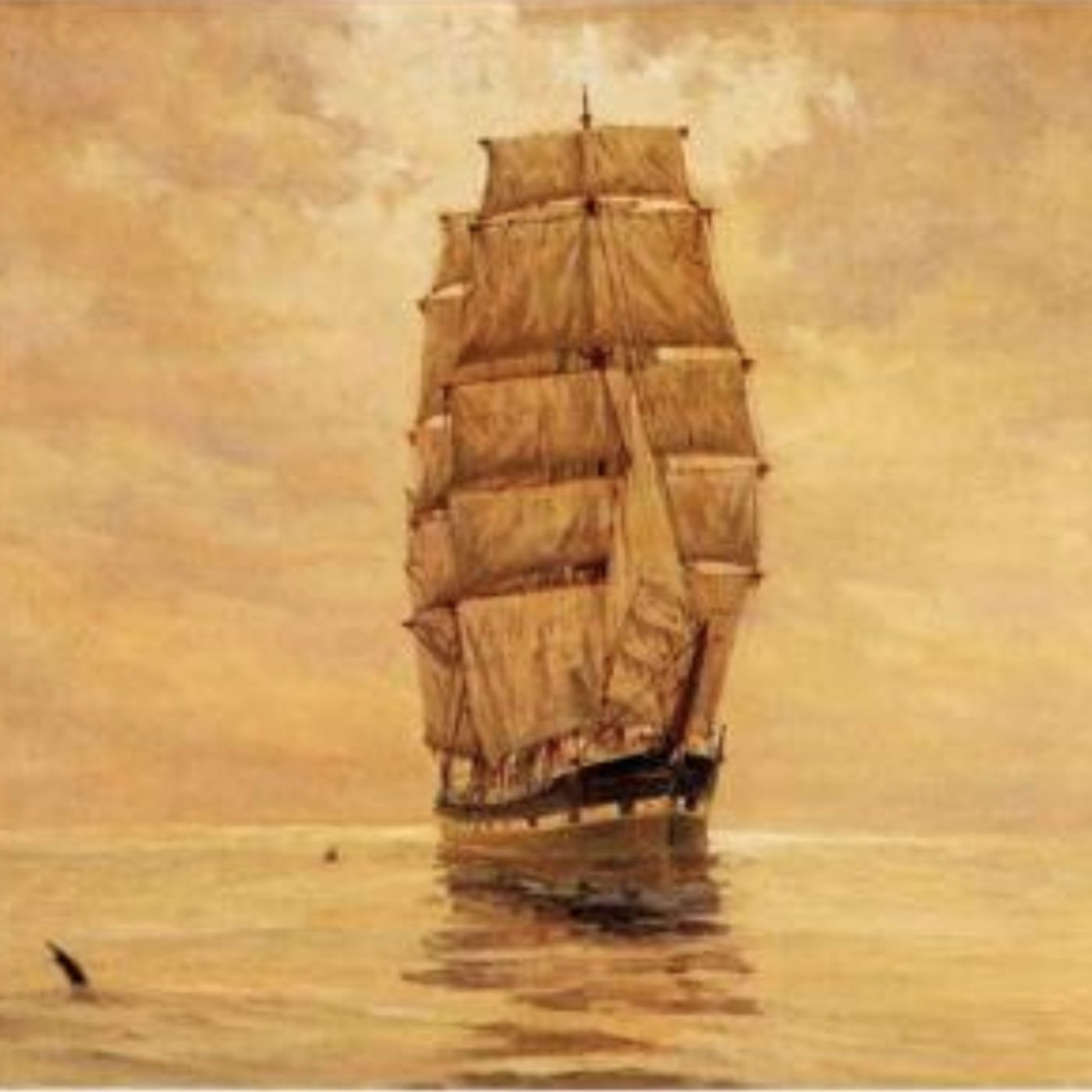
Episode 729: High Summer Free For All, from the CNO, to unmanned systems, to ... Austria?
Show LinksNavy’s Plan for Unmanned SystemsDepartment of Crazy Ideas: How about a cheap inshore fleet? Mark Tempest, 2009.Buy Fords, Not Ferraris, Jerry Hendrix, 2008Droning on About Drones, CDR Salamander, 2013Building the Navy’s Hybrid Fleet, Lieutenant Commander Jack Rowley, Proceedings, July 2025.The Moon is a Harsh Mistress, Robert A. HeinleinThe Mote in God’s Eye, Larry Niven and Jerry PournelleBenjamin Kohlmann, Nominated for Assistant Secretary of the Navy for Manpower and Reserve AffairsJohn Lewis-class replenishment oilerCleo Paskal on XA Death in the Pacific, CDR Salamander, July 2025Rods From GodAustria Ponders NATOSummaryIn this episode of Midrats, the hosts discuss the current state of the U.S. Navy, starting with the new Chief of Naval Operations (CNO) and the challenges he faces in balancing operational needs with budget constraints. They explore the importance of shipbuilding and naval readiness, innovations in technology such as modular attack surface craft, and the role of autonomous systems in enhancing operational capabilities. The conversation also touches on economic considerations in naval strategy, the potential for space-based systems, and the significance of recruitment and training for future naval forces. Additionally, the hosts discuss the role of the Naval Reserve, political dynamics in naval appointments, logistical challenges, and geopolitical considerations in the Pacific, concluding with thoughts on NATO's future and the potential inclusion of Austria.Chapters00:00: Introduction02:05: New CNO and Navy Leadership Challenges04:57: Shipbuilding and Naval Readiness09:43: Modular Attack Surface Craft, Drones, and Innovation16:15: Autonomous Systems and Experimentation19:23: Risk Management via Distributed Risk21:32: Economic Considerations in Naval Strategy22:55: Rods from God: Now More Than Ever30:18: The Role of the Naval Reserve33:50: Political Appointments and Their Impact36:22: More Oilers, Faster47:28: Saipan, and Geopolitical Considerations in the Pacific52:52: Austria’s future of NATO?01:01:46: Conclusion and Recommendations
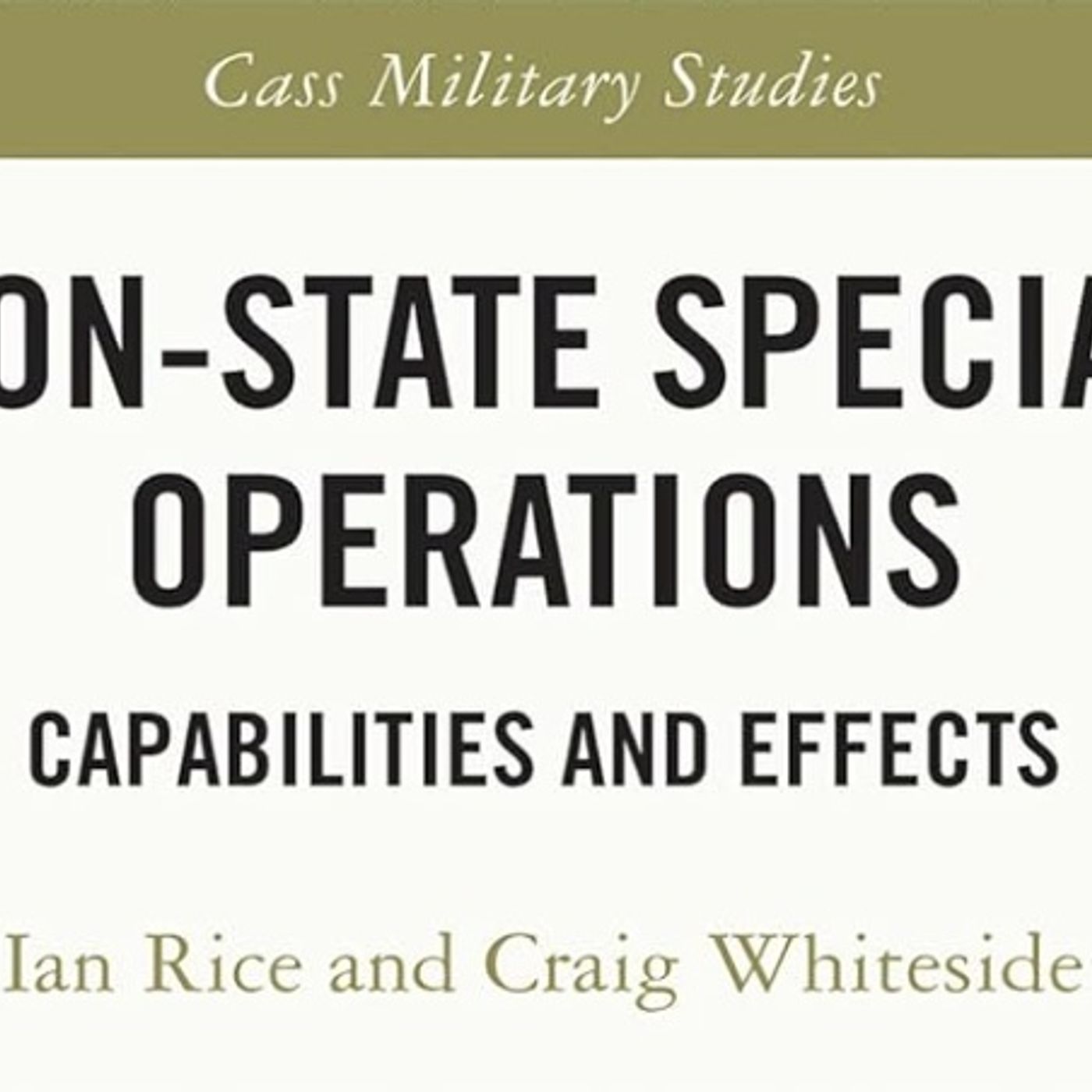
Episode 728: Non-State Special Operations, with Craig Whiteside and Ian Rice
On today’s Midrats, we have returning guest Craig Whiteside and his co-author Ian C. Rice joining us to discuss one of the nightmares we all have in the new book coming out this month. He co-authored it with Ian Rice, Non-state Special Operations: Capabilities and Effects.From the abstract:Building on previous research on Islamic State special operations, the book develops a theoretical framework surrounding a typology of VNSA (militants, proxies, criminal/cults, and mercenaries) to explore variations of non-state special operations, with multiple cases for each category of actor. Understanding when and why VNSA use special operations provides insights into the inner workings of such groups and how they campaign, and also has implications for the proliferation of special operation forces around the globe and its influence on non-state behaviour. This volume contributes to research on the recent trend of non-state actors surprising, and in some cases humiliating, their state opponents.Craig is Professor of National Security Affairs at the US Naval War College resident program at the Naval Postgraduate School, Monterey, California. He is the co-author of The ISIS Reader: Milestone Texts of the Islamic State Movement (2020). He has a PhD in Political Science from Washington State University and is a former U.S. Army infantry officer.His coauthor Ian is an adjunct Senior Lecturer in the Department of Defense Analysis, Naval Postgraduate School, adjunct faculty member with the College of Distance Education, USMC University, and a guest lecturer with the Royal Danish Defence College. He is a retired U.S. Army officer who served with special operations forces.Show LinksNon-state Special Operations: Capabilities and Effects, by Craig Whiteside and Ian Rice.Operation ChariotDefeat Into Victory: Battling Japan in Burma and India, 1942-1945, Field-Marshal Viscount William SlimSummaryIn this episode of Midrats, hosts discuss the complexities of non-state special operations with authors Craig Whiteside and Ian Rice. They delve into the historical context, defining characteristics, and implications of special operations conducted by non-state actors. The conversation highlights the importance of understanding the motivations and strategies of these actors, as well as the challenges they pose to state actors. The authors share insights from their new book, exploring the evolution of non-state operations and the need for a nuanced approach to countering them.TakeawaysSpecial operations are defined as tactical actions designed to achieve outsized effects.Historical examples illustrate the long-standing use of special operations by non-state actors.Understanding the typology of non-state actors is crucial for effective analysis and response.Prison breakouts are a common tactic used by non-state actors to regain manpower.Cults and criminal groups can also engage in special operations, often driven by self-interest.Not all terrorist acts qualify as special operations; criteria must be applied to distinguish them.The opportunity cost of special operations can be significant for both state and non-state actors.Mercenaries have a unique role in conducting special operations, particularly in coups.Chapters00:00: Introduction to Non-State Special Operations02:15: Genesis of the Book and Collaboration05:49: Defining Special Operations08:43: Historical Context of Non-State Actors11:36: Analyzing Non-State Actors18:13: Understanding the Typology of Non-State Actors23:42: Criteria for Special Operations28:45: Prison Breakouts as a Tactic32:13: Cults and Criminal Groups in Special Operations36:53: Distinguishing Terrorism from Special Operations43:26: The Cost of Special Operations49:13: Mercenaries and Coups52:08: Mindset of Special Operations58:47: Implications for Future Operations
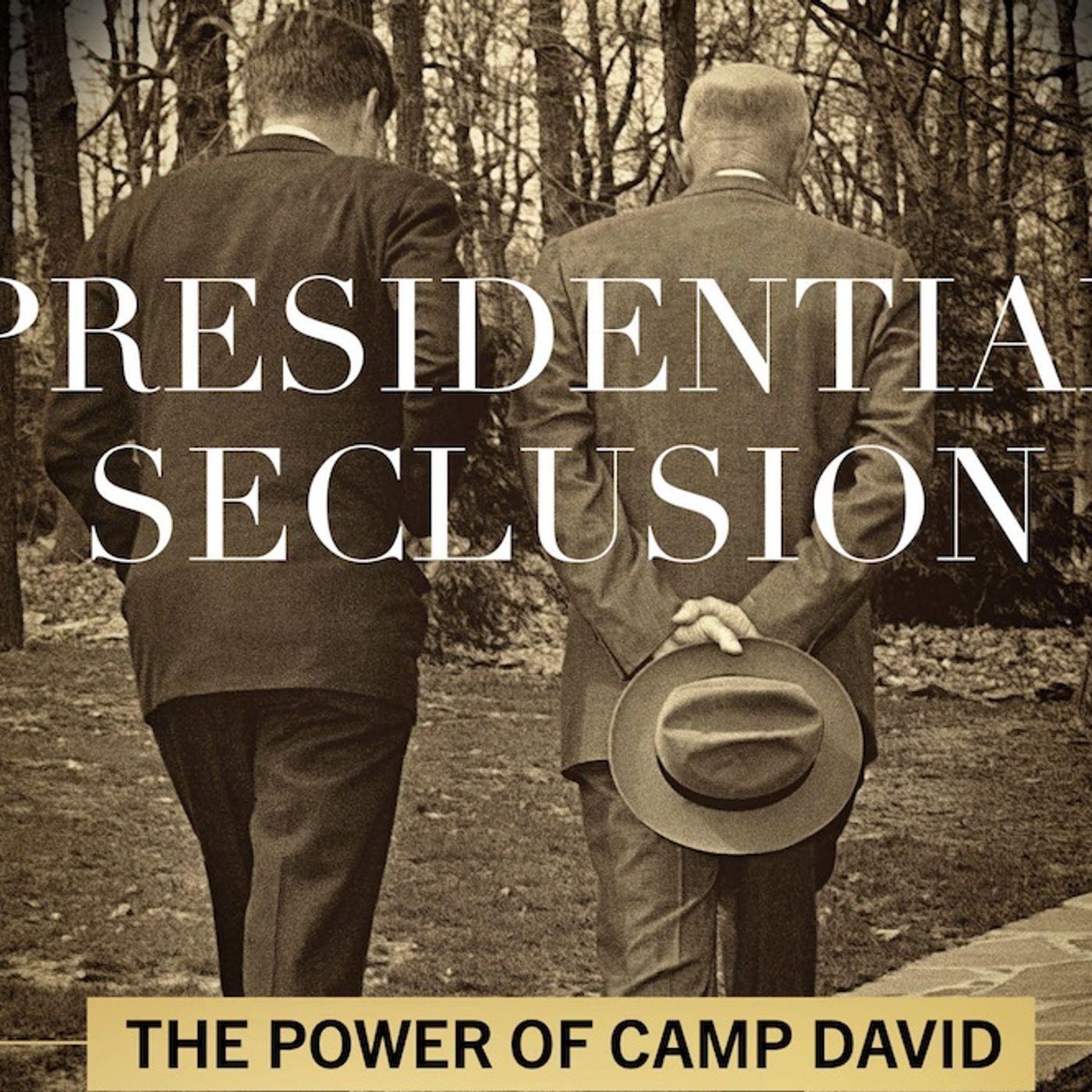
Episode 727: The Power & Spirit of Camp David, with Charles Ferguson
Take a break from the heat today to discuss some of the hidden history, and importance, of the Presidential retreat at Camp David with the author of the book, Presidential Seclusion: The Power of Camp David, Charles Ferguson.After graduating from Georgia Tech and earning his commission, Charles Ferguson served for 11 years in the Submarine force onboard the USS Louisville and as Weapons Officer onboard USS Buffalo with a shore duty at Nuclear Power School in between. He switched to the IRR as Chaplain Candidate while attending seminary at Duke Divinity School and was recommissioned as an Active Duty Chaplain in 2010. As a chaplain he has served with both Navy and Marine Corps commands to include three and a half years as the Chaplain and Historian at Camp David.ShowlinkPresidential Seclusion: The Power of Camp DavidSummaryThis conversation explores the historical significance and operational dynamics of the Presidential retreat of Camp David. The discussion highlights its origins, the Navy's role in its management, and the unique environment it provides for presidents to make critical decisions. The conversation also delves into the architectural design that facilitates diplomacy, notable guests who have visited, and the personal touches each president has added to the retreat. Additionally, the role of the chaplain and the supportive relationship with the local community are examined, emphasizing the importance of solitude for leaders in high-pressure positions.Chapters00:00: Introduction to Camp David's Significance05:35: The Navy's Role in Camp David's History10:27: Becoming the Chaplain and Historian at Camp David15:22: The Origins and Transformation of Camp David20:38: The Impact of Camp David on Presidential Decisions29:15: Notable Guests and Diplomatic Encounters at Camp David30:53: Architectural Diplomacy at Camp David34:20: Presidential Modifications and Personal Touches38:04: The Origin of Camp David's Name40:58: Management and Operations at Camp David43:13: The Role of the Chaplain45:25: The Solitude of Leadership49:32: Community Interactions and Local Support53:22: Memorable Moments and Staff Contributions58:14: The Importance of Setting Conditions for Peace01:00: Future Projects and Closing Thoughts
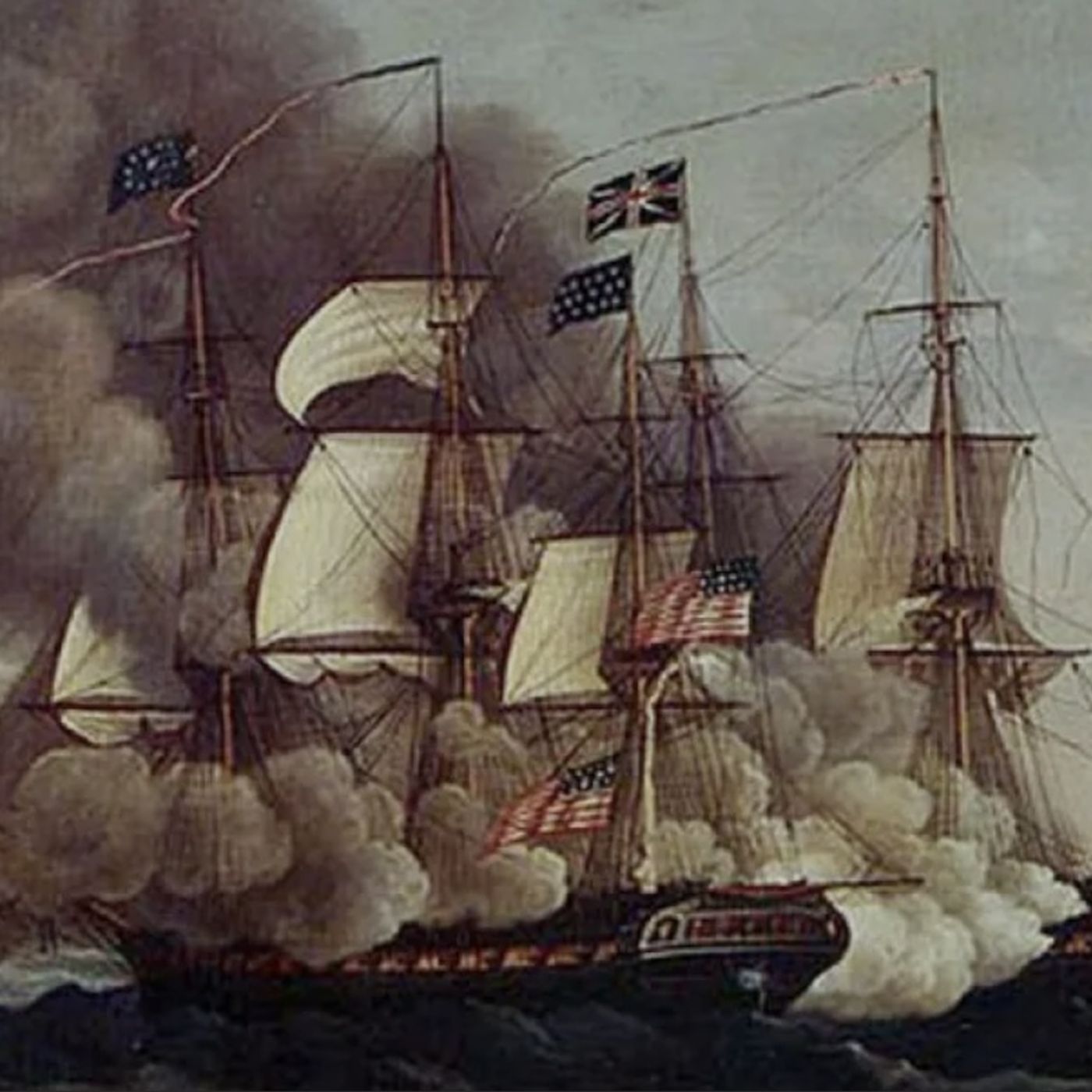
Episode 726: Pre-July 4th Free For All
Show LinkInfantryDort’s comment mentioned at start of the showSummaryThe conversation explores the themes of cultural assimilation, national identity, freedom of speech, and the challenges of civil discourse in contemporary society. The hosts discuss the implications of cultural integration on national security and the importance of leadership in fostering a healthy societal environment. They reflect on the historical context of civil rights movements and the need for a national conversation about current societal issues, emphasizing the value of freedom and the responsibilities that come with it.Chapters00:00: Introduction02:00: Cultural Assimilation and National Identity09:42: Challenges of Assimilation and Cultural Clashes14:47: Freedom of Speech and Its Boundaries20:31: The Role of Universities in Civil Discourse28:15: Historical Context of Civil Rights and Current Issues37:49: Protests and Civil Disobedience47:53: National Security and Military Readiness
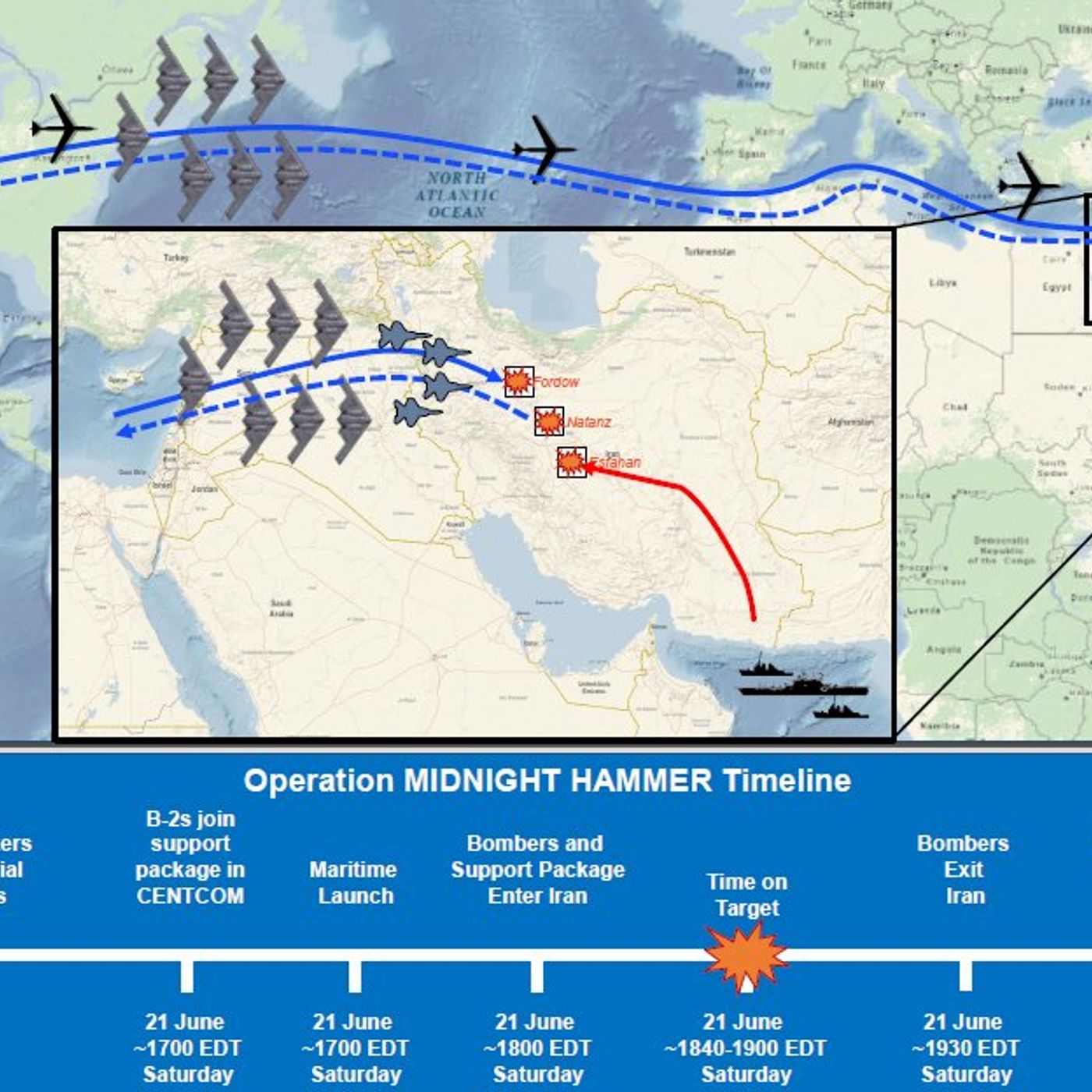
Episode 725: Hammer Time
What can the world’s most capable maritime and aerospace power do?The world was reminded this weekend.There is no other place this week’s Midrats could start but the strikes on Iran’s nuclear facilities.SummaryThe conversation delves into the recent Operation Midnight Hammer, discussing its implications for U.S.-Iran relations, the threat of Iranian retaliation, and the strategic military operations involved. The hosts analyze the historical context of U.S.-Iran tensions, the effectiveness of military responses, and the broader geopolitical landscape, including the role of international relations and domestic political reactions. They also touch on naval operations, fleet readiness, and the evolving nature of mine warfare in modern military strategy.Chapters00:00: Operation Midnight Hammer: A Historic Overview05:31: Iran's Nuclear Ambitions and U.S. Response12:03: The Threat of Iranian Retaliation18:03: Military Capabilities and Strategic Operations23:09: The Role of International Relations29:09: Domestic Reactions and Political Implications35:08: The Future of U.S.-Iran Relations41:45: Naval Operations and Fleet Readiness48:04: Mine Warfare and Modern Naval Strategy54:47: Concluding Thoughts on Military Success and Future Challenges
Create Your Podcast In Minutes
- Full-featured podcast site
- Unlimited storage and bandwidth
- Comprehensive podcast stats
- Distribute to Apple Podcasts, Spotify, and more
- Make money with your podcast













